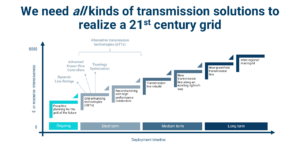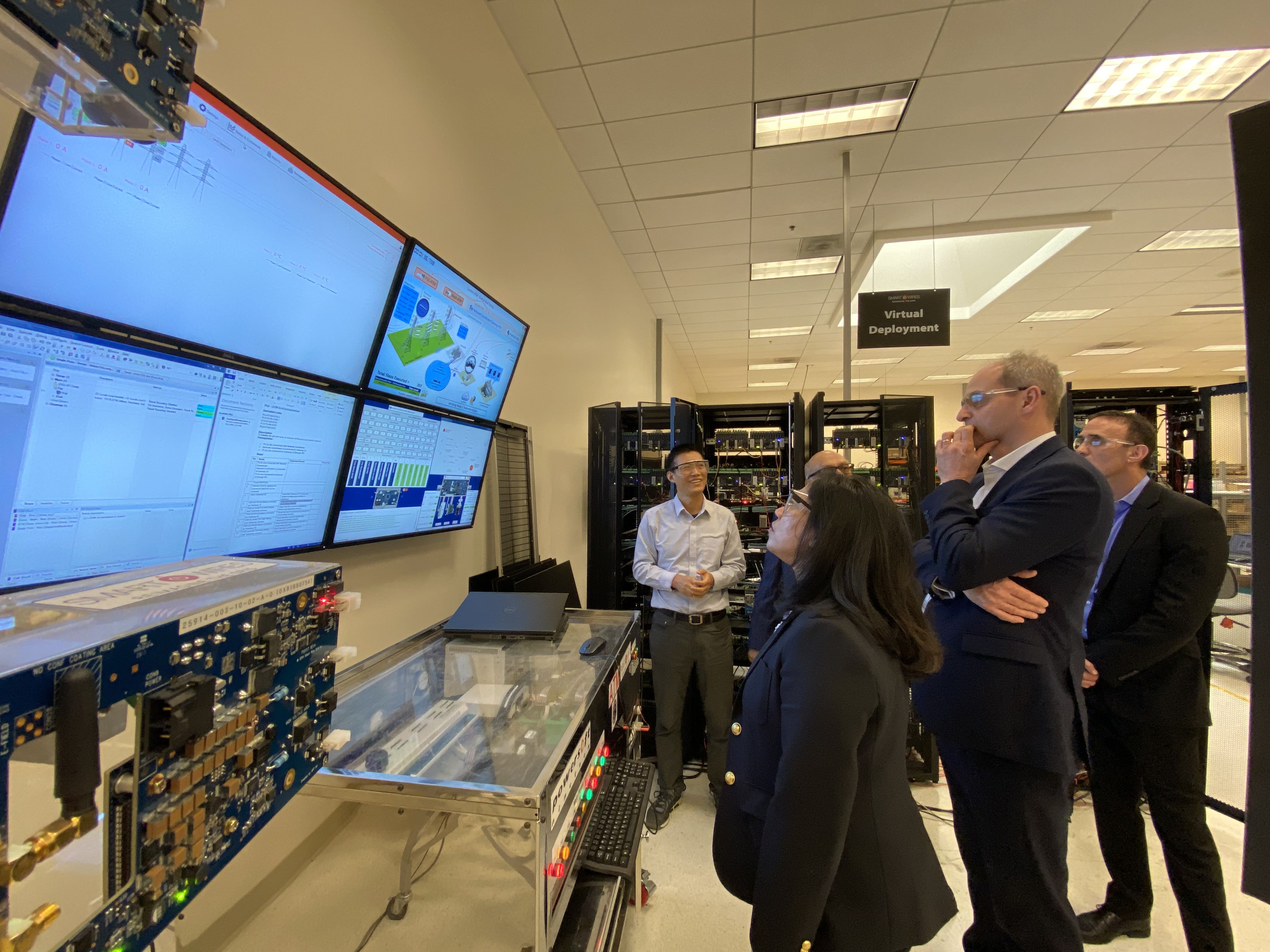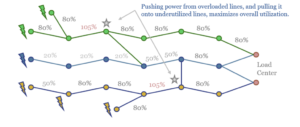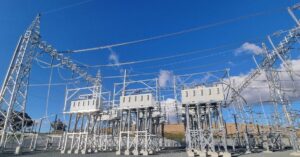
National Grid Electricity Transmission Signs Strategic Deal with Smart Wires for Power Flow Control Technology to Enable Greater Volumes of Renewable Power
November 26, 2019
National Grid Electricity Transmission (NGET) has awarded a five-year framework agreement to power flow control technology company, Smart Wires. This will help decarbonize the UK electricity grid by enabling greater volumes of renewable power to be efficiently transferred to customers. NGET will use modular power flow control technology to increase power transfer capability by making better use of its existing network.

As the generation and demand connected to the network changes, network power flows change and circuits can become unequally loaded. Some circuits reach their maximum capacity while others are well below their limits. Installing power flow controllers allows NGET to provide the Electricity System Operator with the tools to quickly reduce the congestion that limits renewable generation, with minimal impact on communities and the environment.
NGET will proceed with five installations in 2020. These projects are anticipated to increase boundary capabilities by 1.5 gigawatts in total across three boundaries.
Smart Wires power flow control devices allow utilities to increase the efficiency and resilience of today’s infrastructure. The technology’s modular nature means it’s quick to install and easy to move, thereby providing valuable flexibility. NGET can adjust the roll-out of the technology in response to network needs as they develop.
On visiting Smart Wires Global Research and Development Center in Silicon Valley, California, David Wright, Director of Electricity Transmission and Chief Electricity Engineer at National Grid, said, “NGET is pleased to sign this agreement with Smart Wires. This is an example of our commitment to deliver clean and affordable energy for our customers.
We have already completed several innovation projects with Smart Wires and have been impressed with their technology and professionalism.
I can see a world very soon where power grids everywhere become more intelligent, digital and controllable. NGET will be a leader in this transition and it’s inevitable that technology like Smart Wires will be a big part of this future.”
In response, Gregg Rotenberg, CEO of Smart Wires said, “NGET is demonstrating true global leadership and a genuine commitment to fighting climate change.
By making full use of their existing infrastructure, NGET is embracing the transformational changes that are required to achieve wide-scale decarbonization.”
Detailed Notes
A total of five projects will be installed in 2020. These projects will contain a total of 375 MVAr of power flow control capability. These projects are anticipated to increase boundary capabilities by 1.5 gigawatts in total across three boundaries. NGET see numerous other opportunities across their network to leverage this type of technology over the course of the framework agreement timeframe.
Smart Wires technology can unlock more system capacity at a lower cost than legacy solutions. Additionally, once installed, legacy solutions cannot be moved or modified quick enough to match the pace of change affecting today’s network. They therefore sometimes can be overrated, compared to the initial requirement, or replaced if the network changes further.
Smart Wires’ modular design makes it quick to deliver and easy to scale or move. The ability to finalize projects 12 months prior to delivery provides unprecedented flexibility and means investments can be scaled up or down in response to changing system needs. This technology provides several additional advantages compared with legacy solutions including reduced substation footprint and digital control.
About National Grid
National Grid own and operate the electricity transmission network in England and Wales, with day-to-day responsibility for balancing supply and demand. National Grid also operate, but do not own, the Scottish networks. The network comprises approximately 7,200 kilometers (4,474 miles) of overhead line, 1,500 kilometers (932 miles) of underground cable and 342 substations.
National Grid own and operate the gas National Transmission System in Great Britain, with day-to-day responsibility for balancing supply and demand. The network comprises approximately 7,660 kilometers (4,760 miles) of high-pressure pipe and 618 above-ground installations.
As Great Britain’s System Operator (SO) National Grid make sure gas and electricity is transported safely and efficiently from where it is produced to where it is consumed. From April 2019, Electricity System Operator (ESO) is a new standalone business within National Grid, legally separate from all other parts of the National Grid Group. This will provide the right environment to deliver a balanced and impartial ESO that can realize real benefits for consumers as we transition to a more decentralized, decarbonized electricity system.
For press related purposes, please contact us at marketing@smartwires.com.
Dive deeper into related content
Explore our products and services
Talk to our experts


